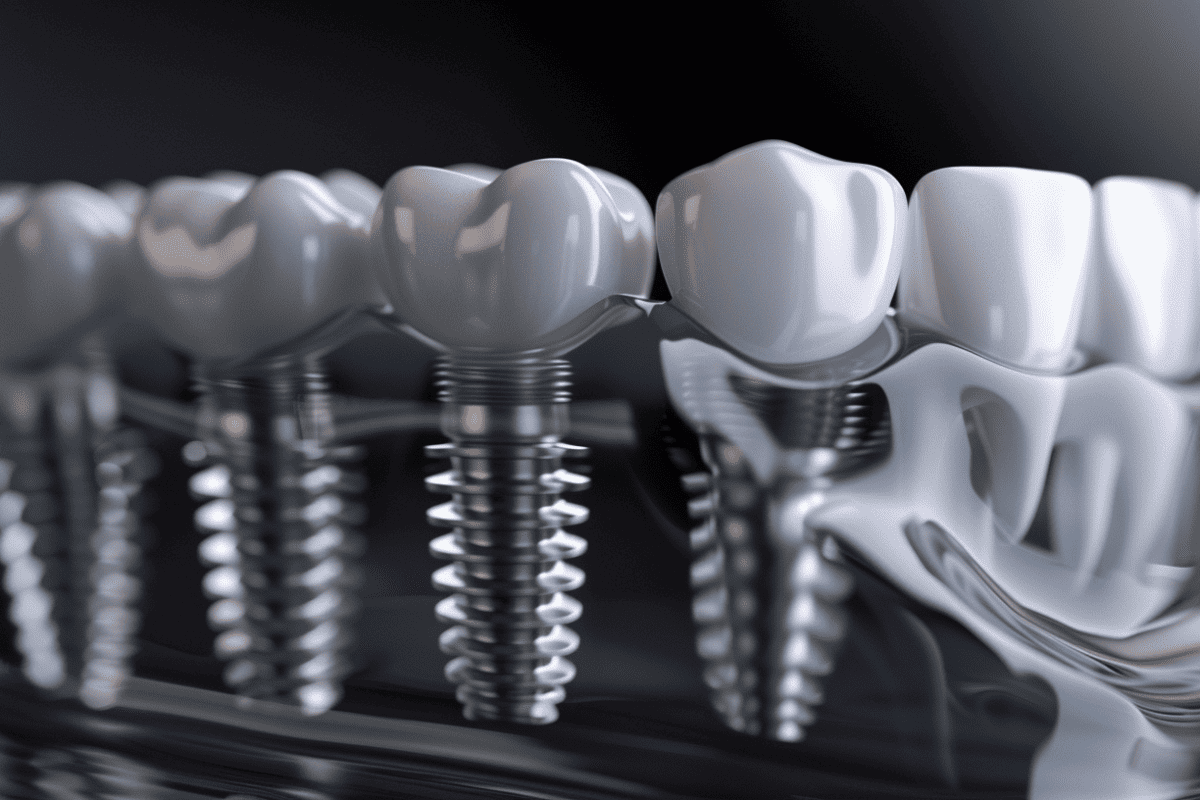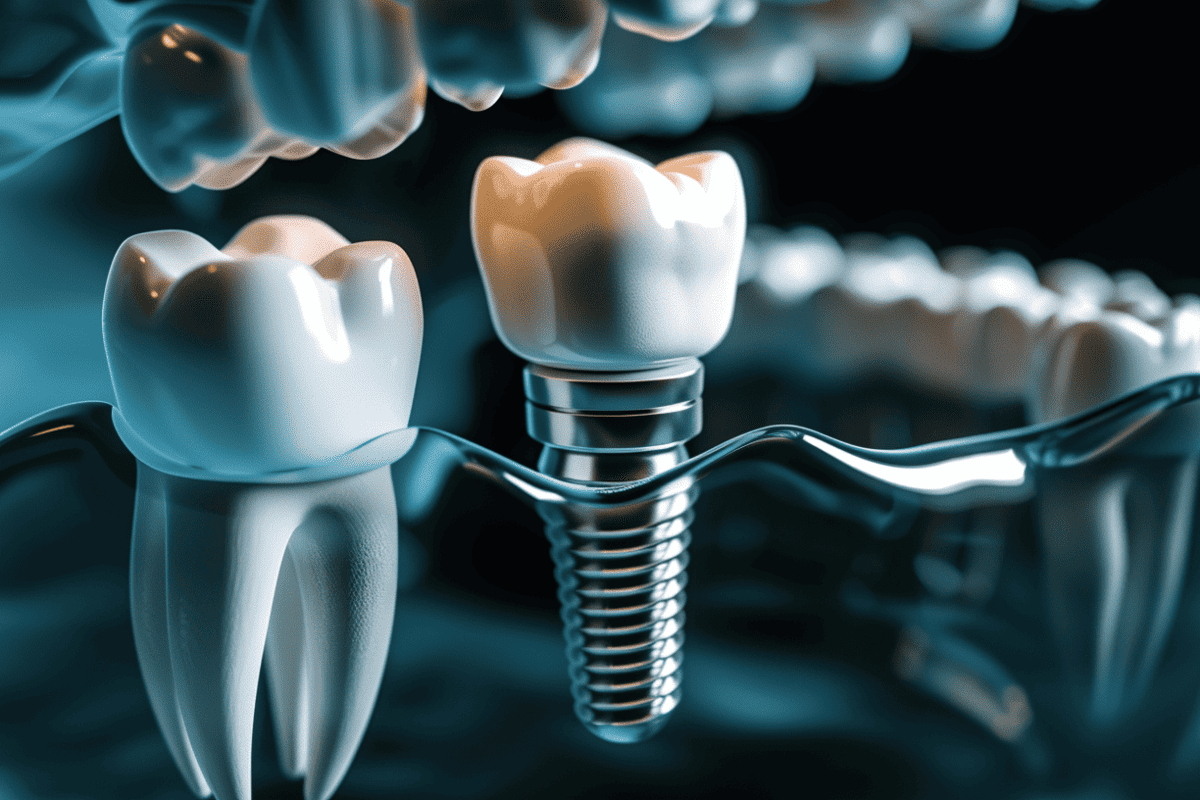Missing a tooth or a number of teeth can significantly impact your quality of life. It affects how you smile, talk, and lowers your confidence.
Luckily, dental implants are a perfect solution for replacing missing teeth. These small screw-like devices, generally made of titanium, substitute your missing teeth’s roots. They merge with your bones like roots, stimulating and preserving their structure.
Generally, dental implants are more permanent, covering the options of dentures, which you can remove and return at any moment. However, various types of dental implants are available. Thus, you’d want to choose one that best suits your condition. In that regard, here’s how to pick the correct type of dental implants for you:
1. Consider The Costs
The cost of dental implants varies depending on various factors like:
- The procedure to be used
Depending on the strength of your jaw, your dentist can use a single-stage or two-stage procedure.
The single-stage method involves using a longer implant that leaves the top uncovered. Once you heal, your dentist directly attaches a restoration without setting up a new incision. On the other hand, a two-stage procedure requires a second surgery to place an abutment. This can add up to the cost of implants.
- The number of implants
The more you require, the more you’ll pay. Ideally, the cost of one implant is lower than that of several implants.
- Location of your missing tooth or teeth
Replacing front teeth is more costly than premolars or molars. This is because matching the front jawline’s angle can be challenging and time-consuming.
- The need for a prior procedure
If your jawbone isn’t strong enough to support the implant, you may require operations like a bone graft or sinus lift procedure, contributing to the overall cost.
Dental implants can be costly, but their long-term benefits overcome those of other solutions like bridges and dentures. The good thing is that you can always find implants within your budget.
2. Research About The Recovery Time
Dental implants require a significant amount of time to recover. The recovery time can be short or long depending on factors like the number of procedures you underwent. The more procedures you underwent, the longer the recovery time. Projected recovery time depends on the health of your gums too. If your gums are healthy, you may recover for some days or weeks.
Besides, the food you consume after the surgery can influence its healing time. Dentists suggest soft food to avoid applying extra force to your implant and causing it to rupture or shift. Therefore, you’d want to pick an implant that takes the most straightforward procedure and eventually has a short recovery time.
3. Know The Risks Associated With Each Type
Dental implants offer an excellent option for replacing missing teeth. Nonetheless, they have some associated risks. Some common risks include the following:
- Sinus issues;
- Nerve damage;
- Infections;
- Bleeding;
- Implant failure;
- Gingival recession;
- Implant breakage;
- Excessive bone loss; and the like.
These issues are rare in some types of implants. Therefore, ensure you work with experts to determine the option that can work best for you and prevent some of these issues.
4. Determine The Number Of Missing Teeth
The number of missing teeth can significantly dictate the kind of implants you require.
For instance, go for single-tooth implants if you need to replace a single tooth. On the other hand, you can go for an implant-supported bridge if you have several missing teeth. This option replaces one to four missing teeth, mainly if you have adequate healthy teeth that can be linked to dental crowns.
On top of that, if you have several missing teeth, you can opt to all-on-4 dental implants. This choice uses only four implants to support your entire jawline.
5. Know The Maintenance Requirements
One good thing about dental implants is that they don’t require extensive maintenance. You need to care for them like your usual teeth by gently brushing them at least twice daily with regular flossing. Doing this prolongs the lifespan of your implants. However, some implants may require complex maintenance. Therefore, you’d want to choose implants with simple maintenance requirements and save time and money by regularly visiting a dentist.
6. Learn More About The Different Procedure Types
Dental implant procedures vary depending on the strength of your jawbone.
For instance, endosteal implants are ideal for people with excellent and healthy jawbones to enable the implants to fuse. When the procedure is complete, it’s left for some time to heal and then the crowns are placed to cover the surrounding teeth.
Meanwhile, subperiosteal implants are suitable for those with insufficient jawbone for implants. Rather than attaching them to your jawbone, your dentist places these implants on top of the bone but below the gum.
Conclusion
Dental implants offer numerous advantages over other teeth replacement options. They’re long-lasting, comfortable, don’t need special care, and resemble natural teeth. However, it’s vital to know that various types of implants are available and vary in cost, recovery time, and so on. It’s essential to choose the right one for you and feel better about yourself. With the appropriate implant, you restore your smile, be more confident and comfortable, and improve your quality of life.
Digital Health Buzz!
Digital Health Buzz! aims to be the destination of choice when it comes to what’s happening in the digital health world. We are not about news and views, but informative articles and thoughts to apply in your business.


